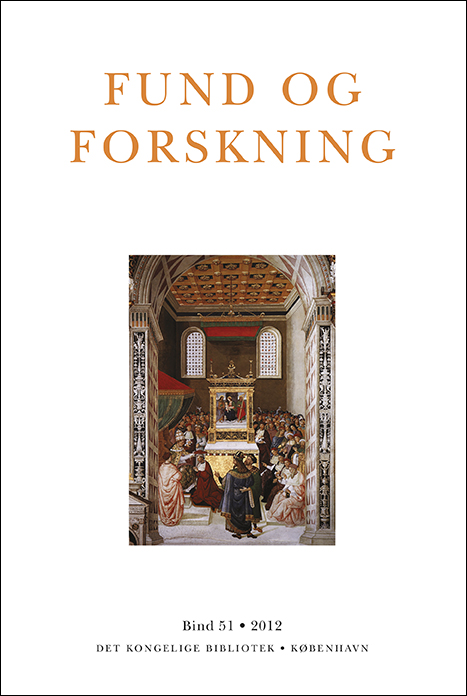Produktivitet og moral. Almanakkens anmærkninger og skillingsviser omkring 1800
DOI:
https://doi.org/10.7146/fof.v51i0.41281Resumé
During the last decade a new research area, information history, has focused on the conceptualization of information as a cultural phenomenon in the broader historical framework. In my contribution, I explore the potential of information history in a Danish context at the beginning of the 19th century using two different kinds of texts: the notes by the royal Danish agricultural society in the almanac and broadside ballads. The main theme is to investigate how information was dispersed through the two different genres and how as genres they helped people orientate themselves in the informational landscape that produced the texts.
The information in the notes of the almanac was strongly influenced by rationalistic and utilitarian thoughts of enlightenment in order to reform the agricultural sector in Denmark. In order to convince the farmer of the advantages of the new farming methods the information was linked to the notion of experience. However, it was a specific definition of experience as something that was systematic and tested as opposed to a perceived understanding of the farmer’s reliance on experience based on superstition.
Furthermore, the notes in the almanac used information as instructions that could easily be transferred to the daily work on the farm thus sustaining the productivity of the farmer.
Discussing the concept of information in relation to broadside ballads might at first glance appear to be a far-fetched endavour because the ballads are often associated with bloody descriptions of murder and crime; leaving the question of reliability open. However, the very poetic configuration was often accompanied by prose descriptions of the actual event based on newspaper reports. Thus the broadside ballads demonstrated a unique mixture of information as news and facts and information on morality. The poetic parts of the broadsides showed a keen interest in describing the deviations from normal social behavior and how these digressions were punished. In essence, the broadside ballads were part of a public negotiation of how the event in question should be interpreted.
Finally, it should be stressed that there are no intentions as to make connections between the almanac and the broadside ballads. They have been examined in order to give a broad framework for discussing information contexts historically.


